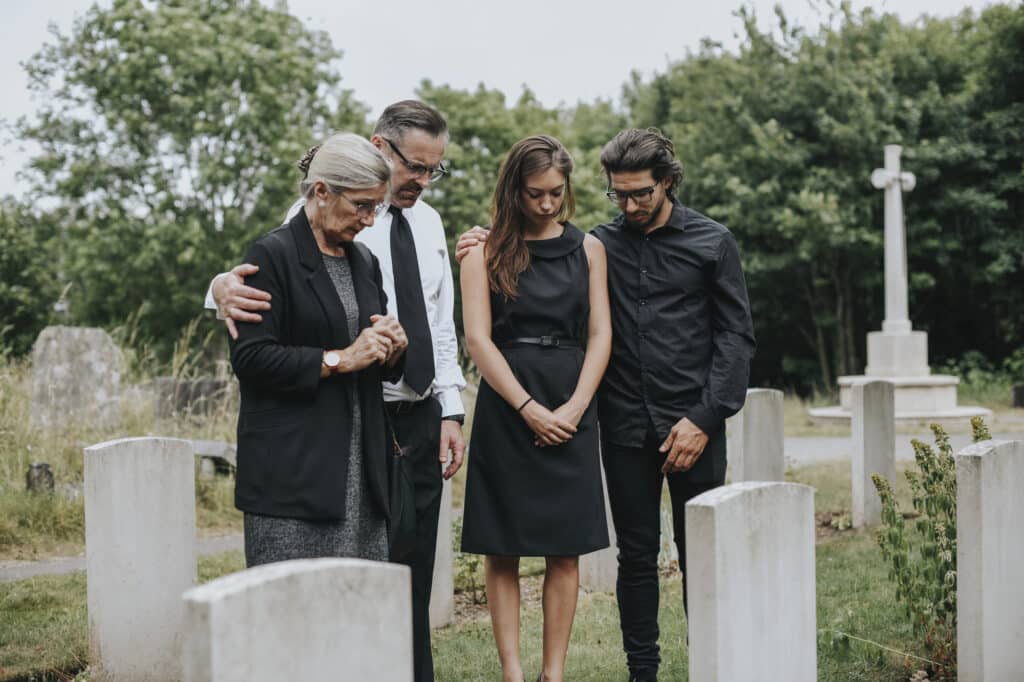Funeral Etiquette and Traditions: A Compassionate Guide

The complexities of funeral etiquette can be challenging, especially when combined with the emotional weight of loss. Understanding both general guidelines and cultural traditions can help ensure that you offer the appropriate respect and support during this sensitive time.
General Funeral Etiquette
Offer Condolences Thoughtfully: Expressing sympathy is often the first step. A simple “I’m so sorry for your loss” can go a long way. For a more personal touch, you might share a memory or express how the deceased touched your life.
Respect the Family’s Wishes: Every family has its own preferences for how they want to handle the funeral. Pay attention to announcements regarding the service, attire, and whether they prefer donations or flowers.
Dress Appropriately: Attire for funerals generally leans towards the formal and subdued. Black is traditionally worn, though dark, muted colors are also acceptable. The goal is to dress in a manner that reflects the solemnity of the occasion.
Arrive on Time: Punctuality shows respect for the schedule and the grieving family. Arriving early can also allow you to offer your support before the service begins.
Be Mindful of Your Behavior: Maintain a respectful demeanor throughout the service. Avoid using your phone, speaking loudly, or engaging in distracting activities. Instead, focus on providing comfort and support to those around you.
Cultural and Religious Traditions
Christian Funerals: Traditionally, Christian funerals involve a church service followed by a burial or cremation. Attendees might participate in hymns, prayers, and readings from the Bible. It’s customary to bring a small token of respect, such as flowers or a card.
Jewish Funerals: Jewish funerals emphasize simplicity and humility. The service often takes place at a synagogue or funeral home, followed by a burial. It’s customary to refrain from speaking during the service and to offer condolences with the phrase “May their memory be a blessing.”
Muslim Funerals: In Islam, funerals are generally held quickly after death. The service includes specific prayers (Salat al-Janazah) and a burial, where the body is laid to rest facing Mecca. Attendees should dress modestly and refrain from engaging in excessive displays of grief.
Hindu Funerals: Hindu traditions involve cremation, with the service focusing on the transition of the soul. Attendees might offer prayers and participate in rituals to honor the deceased. It’s important to be respectful of the religious customs and offer condolences in a manner consistent with Hindu beliefs.
Buddhist Funerals: In Buddhism, the focus is on the journey of the soul. The service often includes chanting and meditation. Respect for silence and mindfulness is key, and offering donations to a charitable cause in the deceased’s name can be a thoughtful gesture.
By understanding and respecting both general funeral etiquette and specific cultural practices, you can provide meaningful support during a difficult time. Your compassion and consideration can offer solace and help honor the memory of the deceased in a way that respects their traditions and values.
Regardless of the chosen funeral style, Merkle Monuments is committed to assisting you every step of the way. From our long history in this profession, we have developed a wide scope of knowledge to assist our clients in their time of grief. Funeral styles and memorial structures are personal choices that should be made with careful consideration and respect for the deceased’s wishes and cultural traditions. Whatever option you decide, Merkle Monuments is here to support you with compassionate guidance and expert craftsmanship to create a lasting tribute that honors your loved one’s memory for generations to come. Contact us for help!

